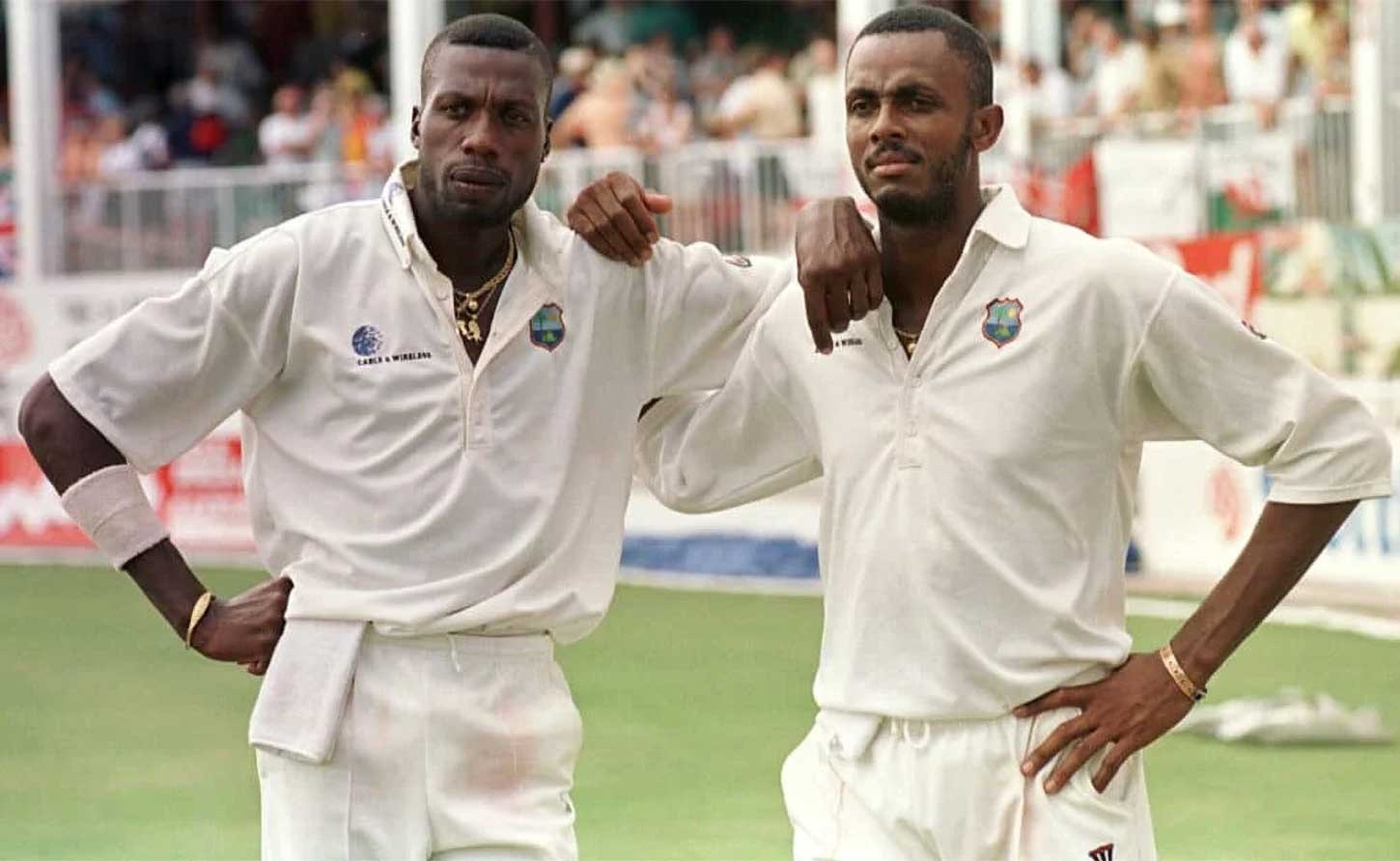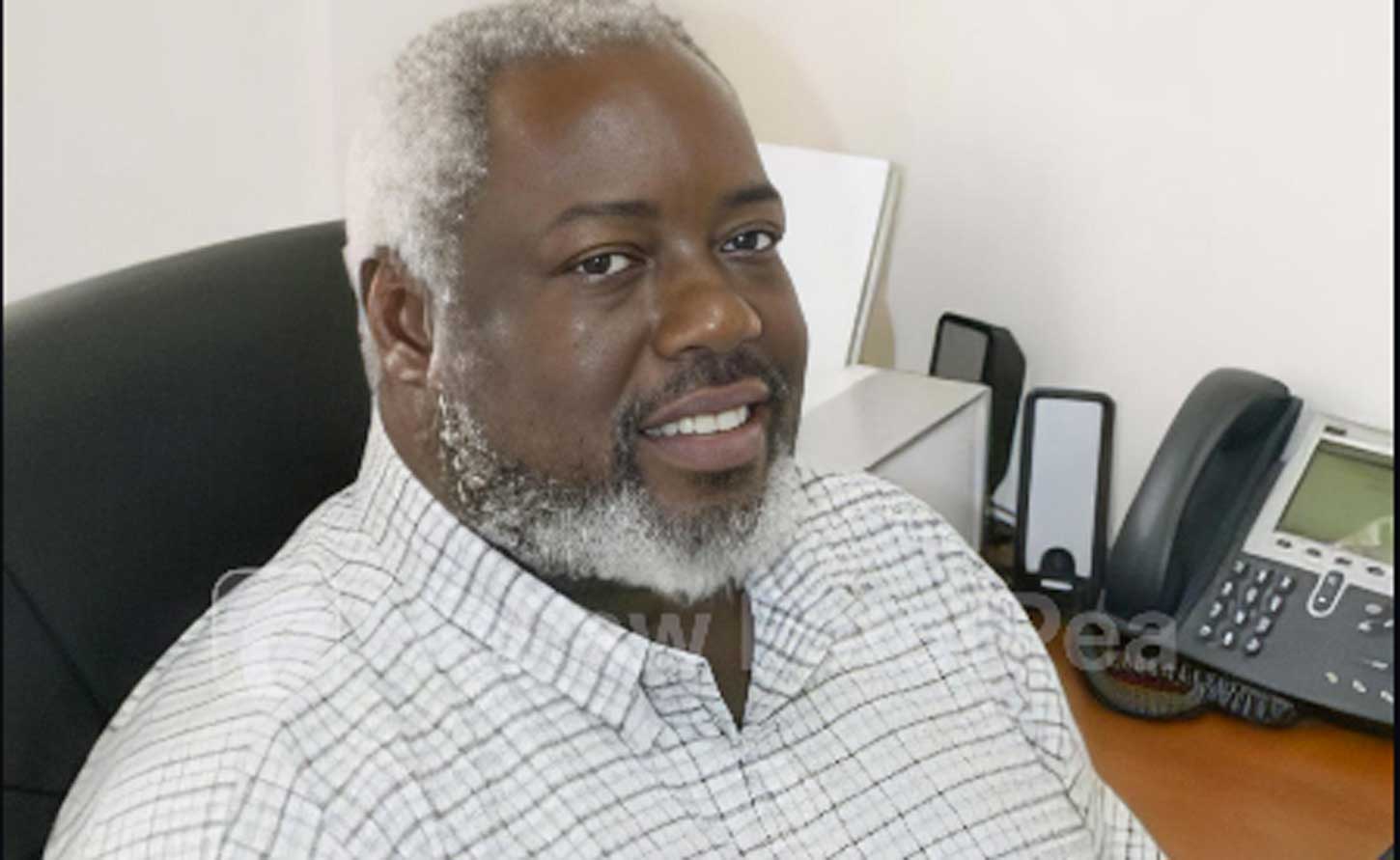OP -ED | Moulding by Mentors - The missing piece of WI cricket development

FORT LAUDERDALE, Florida, July 20, 2025 - They’re on call as supporting columns for West Indies cricket – the way just how they were bolstered – so as far as they’re concerned, legends Ambassador Courtney Walsh and Sir Curtly Ambrose are convinced that recurring workshops, like those they conducted recently at the WI Cricket Academy, are required for structured development.

Stalwarts were always within reach during their time.
One’s mettle was therefore always moulded by mentors – now an apparent missing piece of WI cricket development.
Are we having enough of what went before?
Friends, these fast bowling giants, famed for fierce and fearsome deliveries, are often measured when even pointedly responding to what’s being asked.
‘No we’re not,’ says Walsh, ‘and we simply have to find a way to get more senior players involved – as is done elsewhere where most of the former players work through the ranks of various Academies.’
For validation, he recounted his experience (which he says he will never forget) when the likes of the larger than life Wes Hall, Charlie Griffith and Clyde Walcott were all part of the training camp of the WI Under 19 team, of which he was a member, that toured England in 1982.
Stalwarts also guided the WI ‘A’ team in ’83 on tour of Zimbabwe. In addition, playing the regional 4-day Shell Shield competition, he was rubbing shoulders and therefore benefitting from wise council from Michael Holding (Jamaican teammate), Andy Roberts, Wayne Daniel, Joel Garner and Malcolm Marshall.
Ambrose was cheekily asked, like the title of his book on particular challenges facing WI Cricket, if without this mentorship we were Asking for trouble.
With raspy voice and chuckle, he commented – a delivery at best leaving the batsman, that what was simply needed was ‘a proper mentorship structure throughout the region.’ ‘There has to be consistency – more of this is needed, not less,’ he said.
They both enjoyed their stints at the Academy – a period of three days for Ambrose and two for Walsh. The youngsters all warmed to what was being imparted, and the techniques of the legends are quite interesting.
‘They were quite receptive,’ said Ambrose, ‘because a number of them knew me when I was the bowling coach for the Under 19 team (Floyd Reifer was coach) during the World Cup in the Caribbean. They know what I stand for, as discipline and hard work are required to shape and strengthen talent and to be successful.’
The first of his three days was spent on discussing legacy. ‘Where we are now,’ he told them, ‘is not where we are accustomed to being. We’re not playing as well as we used to or how we can play – and they are willing to make it better.
The other two days were used for practice sessions – about cricket and not just bowling. For extended engagements I would emphasize life during and after cricket. Having experienced that, I would present the complete package because as a mentor you’re there to act as a father figure.’
The first of Walsh’s two days was an ‘open house discussion – and one on one sessions,’ he said. The next day was about cricket and executions…’about how the first ball could be your best ball – and about the mindset and discipline required. That hasn’t changed – as once you get onto the field it’s up to you.’
His ideal mentorship programme is about arranged camps for not less than three weeks, with more one on one game improvement periods and general team training in 30 – 45 minute bursts.
Mentors must also be on call for regional team training camps for discussions with players when necessary at the end of each day.
They had to be asked about the perception (as is being argued in some cricketing quarters) that tension at times exists between young players and legends – with talk from the players that seniors are often dismissive, putting them down as not good enough; while stalwarts counter that youngsters can be quite disrespectful.
Yes Walsh had heard the talk – and admitted that ego could find its way in relations more so with players at the senior level, so it was therefore critical that legends as mentors were involved at an early stage – from the Under 15s right up.
Being disrespected by seniors when he was representing the WI was not his experience however…and neither was it his, said Ambrose.
‘I don’t know of anybody putting anybody down,’ Ambrose said, ‘but in our time we were all straight shooters…and you would simply know that you had to pull your weight.’
They’re both level 3 coaches, with Walsh now in England as part of the coaching staff of the Oval Invincibles women’s team and will be thereafter coaching Guyana in the women’s Caribbean Premier League (CPL). Ambrose is now the bowling and assistant coach of the Antigua and Barbuda Falcons.
They’re all quite ready to give back….moulding as mentors.
-30-
